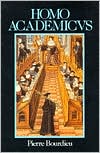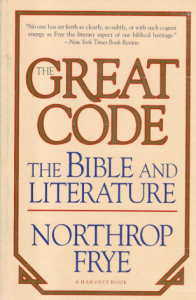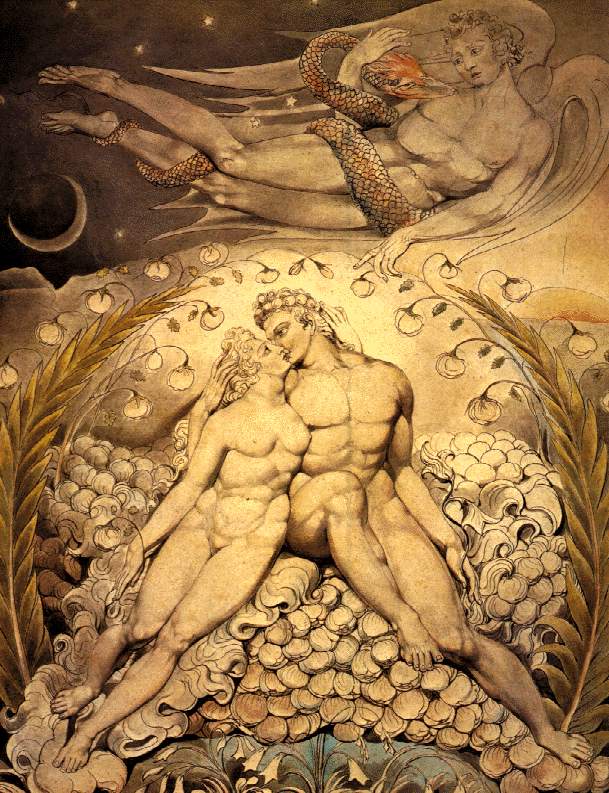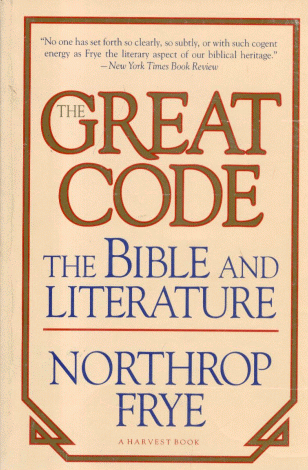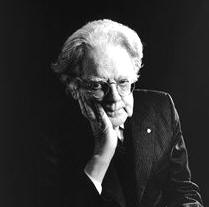
With regard to Joe’s question about Frye’s method and the “way he thinks,” it seems to me that a critical method is a function of at least four variables: the language a critic uses (the material cause: out of what?); the subject matter he or she explores (the formal cause: what?), the manner used to make a point or construct an argument (the efficient cause: how?), and the purpose(s) of his or her discourse (the final cause: why?). With regard to Frye, all of these variables are worth sustained investigation.
Consider the efficient cause. How does Frye proceed in setting out his position on whatever his subject matter is? We might approach this by asking, How does Frye’s mind work? How does he think?
1. Dialectically, by the juxtaposition of opposing categories. There are scores of these: knowledge and experience, space and time, stasis and movement, the individual and society, tradition and innovation, Platonic synthesis and Aristotelian analysis, engagement and detachment, freedom and concern, mythos and dianoia, the world and the grain of sand, immanence and transcendence, ascent and descent, and so on. Consider the chapter titles of part 1 of Words with Power: sequence and mode, concern and myth, identity and metaphor, spirit and symbol.
2. Epiphanically. Intuitive moments of sudden illumination. Frye records seven or eight of these, some of them named: the Seattle illumination, the St. Clair epiphany. These might not properly be called thinking, but these moments were important in forming the vision that he writes about.
3. Schematically. Frye can’t think without a diagram in his head. Spatial representation of thought (diagrams, charts, categories arranged in space––cycles, circles, tables, and other visual taxonomies) are always prior. His diagram of diagrams he called “The Great Doodle.” Lesser doodles (his phrase) include the omnipresent HEAP scheme and the ogdoad. The hundreds of schema he uses are stored (for instant recall) in his vast memory theater. Thinking schematically means that he is fundamentally a deductive thinker (in spite of the fact that I can think of no critic who had a greater inductive store of literary data).
4. Analogically. Frye is obsessed with similarities rather than differences. He does, of course, have a strong Aristotelian streak, what with all his anatomizing and categorizing. But while he agrees with Coleridge that we can distinguish where we cannot divide, the bottom line is that Frye is an analogical thinker, like Plato.
5. Upwardly. Frye is always moving toward a telos, an end. There is always another step to be taken to get beyond the present mental or imaginative state. “Beyond” is the most revealing preposition in Frye’s religious quest––a preposition that takes on special significance only late in his career. During the last decade of his life he uses the word repeatedly as both a spatial and a temporal metaphor. Having arrived at a particular point in his speculative journey, over and over he reaches for something that lies beyond. Notebook 27 (1985) begins with a series of speculations about getting to a plane of both myth and metaphor beyond the poetic, and Frye even confesses that there is no reason at all to write Words with Power unless he can get to that plane (LN, 1:67). The Bible implies that there is a structure beyond the hypothetical (LN, 1:8, 14). Many things are said to be beyond words: icons, certain experiences, the identity of participation mystique (LN, 1:15, 16). Here’s a sampler:
